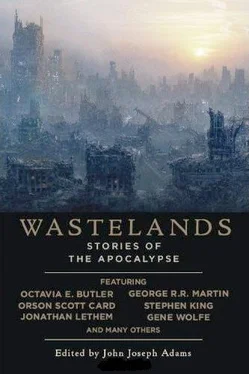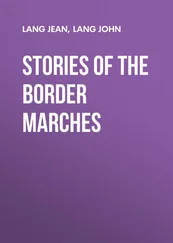“Who? When?” She leans so close that I can see the lines of makeup sharp against her skin.
“Bobby. Some of the other kids. They ate candy.”
Her hand comes palm down, hard, against the table. The macaroni bowl jumps, and the silverware. Some milk spills. “Didn’t I tell you?” she shouts.
“Bobby plays with them all the time now.”
She squints at me, shakes her head, then snaps her jaw with grim resolve. “When? When did they eat this candy?”
“I don’t know. Days ago. Nothing happened. They said it was good.”
Her mouth opens and closes like a fish. She turns on her heels and grabs the phone as she leaves the kitchen. The door slams. I can see her through the window, pacing the backyard, her arms gesturing wildly.
#
My mother organized the town meeting and everybody came, dressed up like it was church. The only people who weren’t there were the Manmensvitzenders, for obvious reasons. Most people brought their kids, even the babies who sucked thumbs or blanket corners. I was there and so was Bobby with his grandpa who chewed the stem of a cold pipe and kept leaning over and whispering to his grandson during the proceedings which quickly became heated, though there wasn’t much argument, the heat being fueled by just the general excitement of it, my mother especially in her roses dress, her lips painted a bright red so that even I came to some understanding that she had a certain beauty though I was too young to understand what about that beauty wasn’t entirely pleasing. “We have to remember that we are all soldiers in this war,” she said to much applause.
Mr. Smyths suggested a sort of house arrest but my mother pointed out that would entail someone from town bringing groceries to them. “Everybody knows these people are starving. Who’s going to pay for all this bread anyway?” she said. “Why should we have to pay for it?”
Mrs. Mathers said something about justice.
Mr. Hallensway said, “No one is innocent anymore.”
My mother, who stood at the front of the room, leaning slightly against the village board table, said, “Then it’s decided.”
Mrs. Foley, who had just moved to town from the recently destroyed Chesterville, stood up, in that way she had of sort of crouching into her shoulders, with those eyes that looked around nervously so that some of us had secretly taken to calling her Bird Woman, and with a shaky voice, so soft everyone had to lean forward to hear, said, “Are any of the children actually sick?”
The adults looked at each other and each other’s children. I could tell that my mother was disappointed that no one reported any symptoms. The discussion turned to the bright colored candies when Bobby, without standing or raising his hand, said in a loud voice, “Is that what this is about? Do you mean these?” He half laid back in his chair to wiggle his hand into his pocket and pulled out a handful of them.
There was a general murmur. My mother grabbed the edge of the table. Bobby’s grandfather, grinning around his dry pipe, plucked one of the candies from Bobby’s palm, unwrapped it, and popped it into his mouth.
Mr. Galvin Wright had to use his gavel to hush the noise. My mother stood up straight and said, “Fine thing, risking your own life like that, just to make a point.”
“Well, you’re right about making a point, Maylene,” he said, looking right at my mother and shaking his head as if they were having a private discussion, “but this is candy I keep around the house to get me out of the habit of smoking. I order it through the Government Issue catalog. It’s perfectly safe.”
“I never said it was from them,” said Bobby, who looked first at my mother and then searched the room until he found my face, but I pretended not to notice.
When we left, my mother took me by the hand, her red fingernails digging into my wrist. “Don’t talk,” she said, “just don’t say another word.” She sent me to my room and I fell asleep with my clothes on still formulating my apology.
#
The next morning when I hear the bells, I grab a loaf of bread and wait on the porch until they come back up the hill. Then I stand in their path.
“Now what d’you want?” Bobby says.
I offer the loaf, like a tiny baby being held up to God in church. The weeping girl cries louder, her sister clutches Bobby’s arm. “What d’you think you’re doing?” he shouts.
“It’s a present.”
“What kind of stupid present is that? Put it away! Jesus Christ, would you put it down?”
My arms drop to my sides, the loaf dangles in its bag from my hand. Both girls are crying. “I just was trying to be nice,” I say, my voice wavering like the Bird Woman’s.
“God, don’t you know anything?” Bobby says. “They’re afraid of our food, don’t you even know that?”
“Why?”
“’Cause of the bombs, you idiot. Why don’t you think once in a while?”
“I don’t know what you’re talking about.”
The goats rattle their bells and the cart shifts back and forth. “The bombs! Don’t you even read your history books? In the beginning of the war we sent them food packages all wrapped up the same color as these bombs that would go off when someone touched them.”
“We did that?”
“Well, our parents did.” He shakes his head and pulls the reigns. The cart rattles past, both girls pressed against him as if I am dangerous.
#
“Oh, we were so happy!” my father says, rocking into the memory. “We were like children, you know, so innocent, we didn’t even know.”
“Know what, Pop?”
“That we had enough.”
“Enough what?”
“Oh, everything. We had enough everything. Is that a plane?” he looks at me with watery blue eyes.
“Here, let me help you put your helmet on.”
He slaps at it, bruising his fragile hands.
“Quit it, Dad. Stop!”
He fumbles with arthritic fingers to unbuckle the strap but finds he cannot. He weeps into his spotted hands. It drones past.
Now that I look back on how we were that summer, before the tragedy, I get a glimmer of what my father’s been trying to say all along. It isn’t really about the cakes, and the mail order catalogs, or the air travel they used to take. Even though he uses stuff to describe it that’s not what he means. Once there was a different emotion. People used to have a way of feeling and being in the world that is gone, destroyed so thoroughly we inherited only its absence.
“Sometimes,” I tell my husband, “I wonder if my happiness is really happiness.”
“Of course it’s really happiness,” he says, “what else would it be?”
#
We were under attack is how it felt. The Manmensvitzenders with their tears and fear of bread, their strange clothes and stinky goats were children like us and we could not get the town meeting out of our heads, what the adults had considered doing. We climbed trees, chased balls, came home when called, brushed our teeth when told, finished our milk, but we had lost that feeling we’d had before. It is true we didn’t understand what had been taken from us, but we knew what we had been given and who had done the giving.
We didn’t call a meeting the way they did. Ours just happened on a day so hot we sat in Trina Needles’s playhouse fanning ourselves with our hands and complaining about the weather like the grownups. We mentioned house arrest but that seemed impossible to enforce. We discussed things like water balloons, T.P.ing. Someone mentioned dog shit in brown paper bags set on fire. I think that’s when the discussion turned the way it did.
You may ask, who locked the door? Who made the stick piles? Who lit the matches? We all did. And if I am to find solace, twenty-five years after I destroyed all ability to feel that my happiness, or anyone’s, really exists, I find it in this. It was all of us.
Читать дальше












